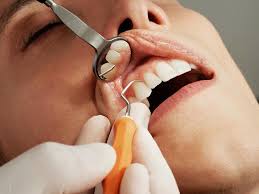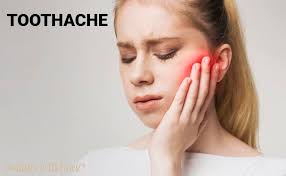Of the many things that have the potential to ruin your day or your mood, toothaches take one of the top positions. You might be peacefully enjoying yourself, maybe having your favourite meal then out of nowhere, you feel excruciating pain in your mouth. They can be from a single tooth or multiple teeth but whatever the case, the effects are massive and the pain is often unbearable. They can be random and oftentimes, happen when we least expect them. Our team at Nairobi Sterling dental clinic put together some knowledge that you should know about toothaches.
What is a toothache?
A toothache is a pain that is felt inside or around the tooth. it can be minor or immense pain. Minor toothaches can come from temporary tooth or gum irritation. There can also be more serious toothaches, which are usually caused by dental and mouth problems. These require medical intervention and you will need to see a dentist for treatment.
Toothaches occur when a nerve in the root of the tooth or surrounding tissue is irritated, or due to inflammation of the pulp. The tooth pulp is the central part of the tooth. It contains nerve endings, tissues and blood vessels that nourish the tooth. Nerves found in the pulp are among the most sensitive nerves in the body. This explains why sometimes the pain from a toothache is excruciating and often persistent. Pulp inflammation can also be a result of bacterial infection of the pulp, such as due to an abscess forming within the root.

Most common causes of toothaches.
There are several causes of toothaches. These include:
Cavities and Tooth decay.
These are the most common cause of toothaches. Cavities are the small holes that form on your teeth and which grow deeper and larger as time goes on. They are caused by poor dental hygiene such as failure to brush or floss regularly. If left untreated, cavities grow deeper into the tooth, forming tooth decay. The decay may reach the pulp, infecting it and adding to the pain. Cavities start as small holes in teeth, that are hard to notice. It is important to maintain healthy dental hygiene to avoid cavities ad tooth decay, hence avoiding toothaches. Visiting your dentist regularly can also help aid in the easy identification, early detection and treatment of these cavities.
Gum disease
Gum disease or periodontal diseases are some of the most common dental diseases in the world. It can be in form of gingivitis which is more common, or periodontitis, which is the more severe type of gum disease. These conditions are caused by plaque build-up on teeth as a result of poor dental hygiene. Plaque harbours bacteria, which infect the gums. They make gums swollen, and soft and they often bleed. Teeth are anchored to the jaw through the gums. An infection of the gums causes toothaches, due to inflammation of nearby nerves and cells. Maintaining proper dental hygiene is important, and so is having frequent appointments with your dentists, to prevent gum disease.
Abscessed tooth.
This is an infection within the tooth pulp chamber. This is the region found between the root tip or around the root. It can result from swollen gums, infected roots or possible bone loss at the site of infection. Abscesses can be a result of tooth decay reaching the pulp, injury to the tooth, tooth trauma or interference of the pulp chamber by the dental crowns. They can be characterized by swelling of gums, redness or darkening of gums or intense and persistent pain.
Injury/ Trauma
These are among the most common causes of toothaches. They may be in form of broken teeth, worn-out teeth or cracked teeth. Such injuries or trauma cause pain in the teeth, leading to toothaches. They can be as a result of accidents, weak teeth or infection. Teeth injuries should not be taken for granted. One should report to the dentist immediately for a check-up and treatment. This is because bacteria can access the inner tooth through such defects, causing harm to the pulp.
Wisdom teeth.
If you’re experiencing pain in your upper back and bottom molar area and still have your wisdom teeth, there’s a good chance that it’s time for them to be removed. Not removing wisdom teeth when they’re ready to come out can lead to significant pain. If your wisdom teeth are ready to come out, you’ll notice a tender and possibly red area in the back of your mouth around your molars. This pain will only increase as your wisdom teeth continue to grow, especially if they grow misaligned or sideways. If this happens, they can press on nerves and bones as well as surrounding teeth.
Teeth grinding/Bruxism.
Toothaches can also be caused but poor dental behaviour and habits. These include teeth grinding and regular jaw clenching. When you clench your jaw or grind your teeth, you’re deteriorating your teeth as well as applying extra stress on your jaw muscles, leading to toothache and possibly jaw disorders. If you’re affected by TMJ syndrome, your dentist can give you a dental splint to reposition the lower jaw. Additionally, eating more soft foods and applying a warm compress on your jawbone can help reduce stress.
Symptoms of toothaches.
You should seek a dentist’s services should you see any or some of the following symptoms.
- Sensitivity to and due to pressure and changes in temperature
- Pain when chewing in the tooth or jaw
- Headaches
- Bleeding gums
- Discharge from your mouth around the gums
- Swelling around a tooth or jaw
- Redness or darkening of gums.
Home care treatments for toothaches,
There are several home care treatments you can use to offer temporary relief to toothaches. These include:
- Rinsing with warm saltwater. Saltwater can loosen debris between your teeth, act as a disinfectant and reduce inflammation. Stir a ½ teaspoon of salt into a glass of warm water and rinse your mouth thoroughly.
- Rinse with hydrogen peroxide. A hydrogen peroxide (3% solution) helps to reduce inflammation and pain. Dilute the hydrogen peroxide with equal parts water and rinse thoroughly. Don’t swallow it.
- Cold compress. For swelling and pain hold a cold compress of ice wrapped in a towel to the painful area for 20-minute periods. Repeat every few hours.
- Pain medications. Over-the-counter pain medications can reduce pain and inflammation. NSAIDs (nonsteroidal anti-inflammatory drugs) such as aspirin, ibuprofen and naproxen (Aleve®) can be used.
- Clove oil. A natural antiseptic that numbs pain and reduces inflammation. Dab a small amount of clove oil on a cotton ball and apply it to the painful area. Or add a drop of clove oil to a small glass of water and rinse your mouth thoroughly.
- Vanilla extract. The alcohol in vanilla extract numbs the pain temporarily and its antioxidants help the area heal. Use your fingertips or cotton ball to apply the extract to the tooth and gum a few times a day.
- Peppermint tea. Peppermint’s soothing properties can be applied to the painful area with a cooled-down peppermint tea bag. Hold this warm tea bag against the tooth and gum.
- Garlic. Make a paste of crushed garlic clove and apply it to the affected area. Garlic can kill bacteria (it contains the antimicrobial allicin) and relieve pain.
Should the pain persist or if you are not contented with the temporary relief, you should pay your dentist a visit. At the clinic, the dentist will enquire about the toothache, such as asking about the possible cause of the pain, where it is or how severe it is. They conduct a physical examination of the mouth and the painful teeth. Moreover, a specialized X-ray called periapical and Panorex view is taken. These are panoramic X-rays of the teeth and jaw, taken through a digital dental X-ray. They will help the dentist come up with the right diagnosis and right treatment. Treatment is given based on the faulting condition. For example, if the toothache was due to cavities, the dentist will perform a filling procedure. If it was due to an infected dental pulp the dentist will perform a tooth canal treatment. He or she will also give antibiotics and other pain-relieving medication where necessary.

Preventing toothaches.
Management of toothaches can sometimes be troublesome, especially when the pain is severe and home care techniques are not helping much. It is therefore important that we prevent toothaches from happening. Maintaining proper dental hygiene is important in toothaches. This is because it prevents bacteria build-up and plaque which lead to gum diseases, and other conditions such as cavities and tooth decay. They can be achieved by brushing and flossing teeth regularly. It can also be achieved by visiting the dentist frequently for dental check-ups. Furthermore, preventing toothache can involve protecting the tooth from physical injury or trauma. Eating foods low in sugar and eating crunchy foods can also be important.
To cap it all…
As minor as a toothache might sound, it can cause devastating effects if not well taken care of. Toothaches can take away your peace and cause you throbbing pain. However, they are easily preventable, manageable and treatable. To ensure that you get the best help against toothaches, it is important to find qualified and reliable dentists to partner with you in our dental health journey. If you are looking for such a partnership, then look no further than the Nairobi Sterling dental clinic. Our dental specialists are experts, as well as trained and highly experienced in the dental field. Visit us at the Park Suite Building in Parklands, Nairobi or contact us to book your appointment.

